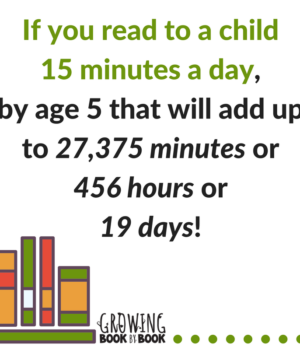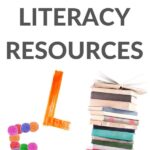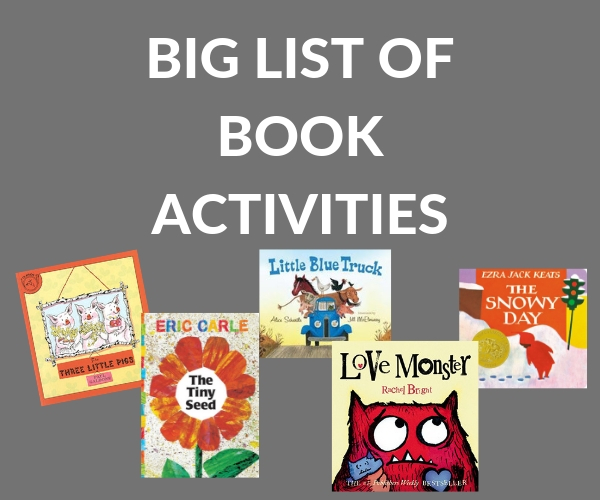Early literacy is the foundation. It’s similar to the foundation of a house. If you have a cruddy foundation then your house isn’t going to be stable. Just like if you don’t have a strong early literacy foundation, then you won’t have a base for building a fluent reader. Let’s establish that strong early literacy foundation.
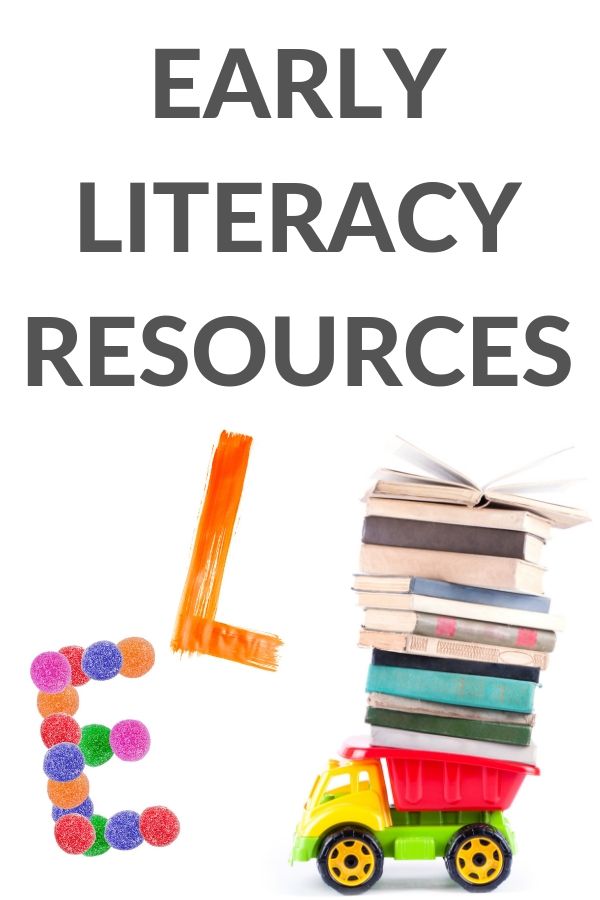
What is Early Literacy?
Early literacy is the foundational groundwork for which all future reading growth is dependent upon. It is all those prerequisite skills that students need to have in place before decoding words on a page can occur.
What Are the Pre-Reading Skills and Foundations?
Alphabet Knowledge
Recognizing letters and connecting those letters with sounds they represent is one of the first places that many families and educators start.
I’m often asked where to start when teaching letters and sounds. My answer is always to start with the letters that are most important to the child. Those letters are the letters in their name.
Use these resources for learning more about teaching the alphabet.
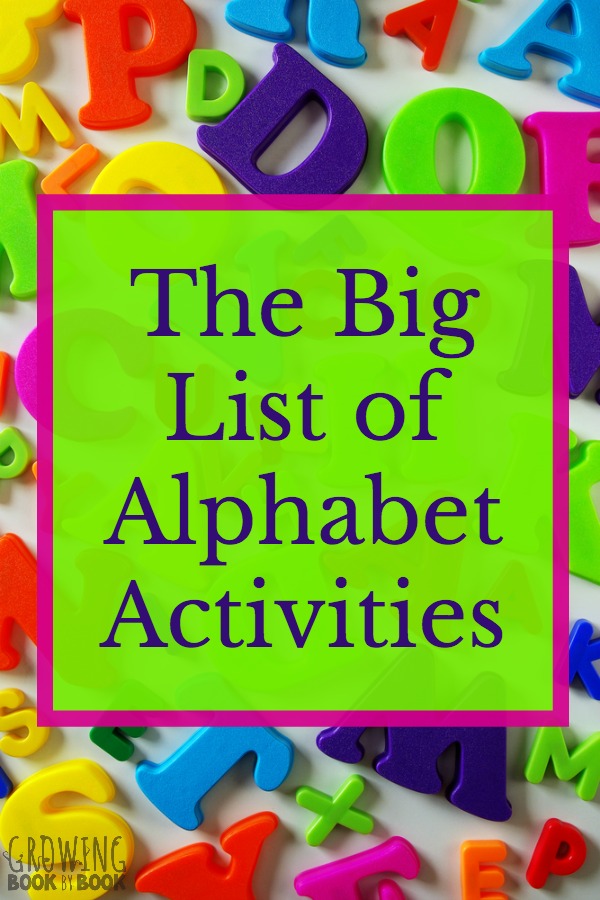
The Big List of Alphabet Activities
Which Letters Should We Teach First?
Phonological Awareness
Phonological awareness is the ability to hear differences in the ways words sound. Just as young children need to hear language before they can talk, they also need to hear language before they can read.
Children with phonological awareness can do things such as identify initial sounds in words, can count syllables in words, and can identify words that rhyme.
Click here to learn about all the ins and outs of phonological awareness.
Oral Vocabulary
Children can hear and understand vocabulary long before they can read and write those words. Have you ever meet a 4-year-old that can pronounce every dinosaur name?
The most important way to develop oral vocabulary is by reading aloud to children every single day as well as having meaningful give and take conversations with them.
Here at Growing Book by Book, we have oodles and oodles of book lists recommending the best of the best books for kids. Lots of choices to help you read aloud each day.
Book Knowledge/Book Handling
How do we turn the pages in a book? Where is the front of the book? Can a child identify the pictures and the text? How do we put books on the shelf? How do we hold them? These are all the things we think about when we are talking about book knowledge and book handling.
And yes, we can teach little ones how to take care of books.
Love of Books and Reading
Cultivating a love of reading and adoration of books is a gift we can help every child discover. What is the best way to do this?
- Read aloud with passion each day to children.
- Share read-alouds that children love.
- Provide a rich diverse library for children to discover and explore.
- Give students time with books every day.
- Have fun with books.
Literacy Rich Interaction
Lots of daily interaction with books and great conversations are key to helping children fall in love with books and reading.
We can also build early literacy skills by extending books and bringing them to life. Growing Book by Book has loads of book activities for your favorite books to share with children.
Fine Motor Development
I’d be remiss not to mention the need for developing fine motor and early writing skills. Both must develop alongside oral language and a love of books. For writing and reading go hand in hand.
When Does Early Literacy Start?
Early literacy starts at birth. That is why at Growing Book by Book we share early literacy activities and book recommendations beginning at birth. Start early to rack up those minutes.
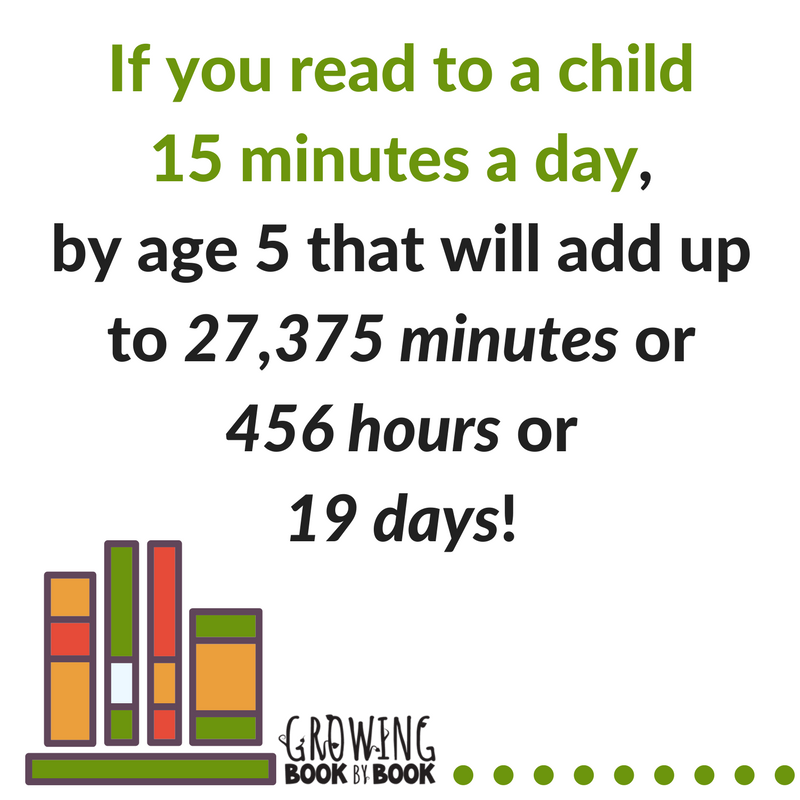
What Activities Support Each Age/Stage in Early Literacy Development
Growing Book by Book makes it easy to find the resources you need for each stage of development. We have book lists, book activities, and early literacy resources for each age group.
Delivery of this teaching is best done through play, reading aloud, and talking with children. In fact, Every Child Ready to Read promotes early literacy in libraries and sites play, talking, and reading as three of their recommendations too.
Babies
Babies love to discover the new world around them.—>Click here for baby literacy resources.
Toddlers
Get down on the floor and play with those toddlers. From alphabet puzzles to dramatic play storytelling, you’ll be amazed at all the literacy skills toddlers soak up through play.—>Click here for toddler literacy resources.
Preschoolers
It’s a whole new world inside a book. Discover that literacy-rich world with preschoolers.—>Click here for preschool literacy resources.
Or, if you want done for you lesson plans to take you through the entire school year, you’ll want our Preschool Literacy Units. They are packed with early literacy goodness.
Beginning Readers
Build literacy skills with beginning readers. Help new readers find books they love and build upon that strong foundation you have developed.—>Click here for beginning reader literacy activities.
What are the Signs Children Are Ready to Read?
How do we know when children are ready to attack decoding and become readers? First, let me say that there is no need to think that starting children earlier is better. Make sure these other pieces are in place first. It’s not a race.
Signs Children Are Ready to Read
- The child has a strong grasp of letters and the sounds they represent.
- The child has a rich experience with listening to stories and interacting with books to see how they work.
- The child has strong phonological awareness.
- The child has a desire to learn to read.
If all four of these signs are visible, then a child may be ready to learn how to decode text.
How Do We Encourage and Support Family Involvement in Early Literacy Development?
Family support for early literacy development is critical. And, it’s part of our job to help families discover, explore, play, and build early literacy skills with their children.
From sharing family opportunities such as Family Dinner Book Club to reading challenges, we can encourage and support our children’s families.
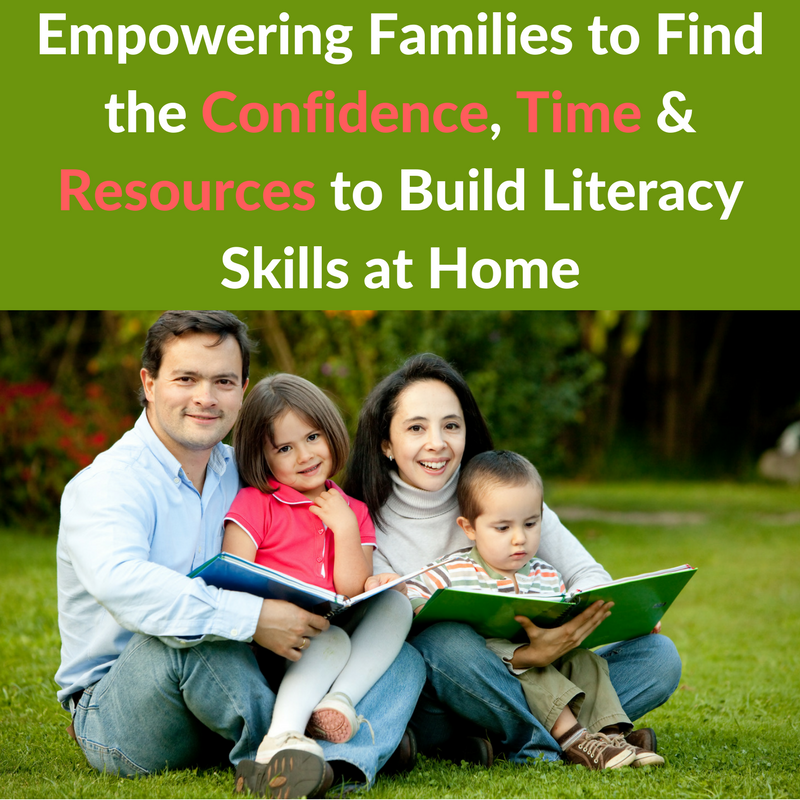
Or, grab our Empowering Families to Build Literacy Skills at Home resource pack.
Let’s start this learning to read journey off on the right foot. Being a member of the Growing Book by Book community means you are committed to helping every child fall in love with books and reading. Become a VIP member of our community and sign up for our free email list.—->Subscribe to Growing Book by Book
Happy Reading!
